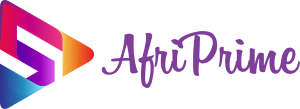The EU-China Summit will take place on December 7 and 8 in Beijing, the bloc's internal market boss Thierry Breton said on Friday.
Charles Michel and Ursula von der Leyen - the European Council and Commission presidents - will sit down with Chinese President Xi Jinping and Premier Li Qiang, more than 18 months after the previous summit and following a period of inflamed tensions across a range of issues.
Breton confirmed the dates during a press conference in Beijing, doing so after an "intense" series of meetings there where he voiced a wish to keep engaging China while also lashing out at its persistent use of subsidies.
Months after Brussels launched an investigation into subsidies in China's electric vehicle sector, the Frenchman said the bloc would "remain vigilant in other clean tech sectors and carefully assess allegations of unfair practices".
"I am also concerned about the wind industry, with reports of Chinese equipment manufacturers offering European project developers 15-to-55 per cent lower prices than European wind turbines, with deferred payments of up to three years and allegedly refusing to sell components to EU competitors," said Breton during an address to the EU Chamber of Commerce in China.
At the subsequent press conference, Breton, who has publicly called for a formal investigation into subsidies in the Chinese wind-turbine sector, was more taciturn.
"I don't want to comment more than that here in China. But I could tell you that I have been very vocal in all my interactions," said Breton, who has been tipped as a candidate for EU commission chief should von der Leyen not secure a second stint next year.
Breton will fly to Singapore on Saturday, skipping a planned trip to Hong Kong for reasons that have not been explained. In Beijing, he met China's Vice-Premier Zhang Guoqing, Minister of Commerce Wang Wentao and Minister of Industry and Technology Jin Zhuanglong.
Ukraine will figure prominently on the summit agenda in December.
In Brussels, officials are preparing a 12th package of sanctions designed to cripple Russia's military engine, a move that could add a new wrinkle of complication to its relations with China.
With Europe running out of sectors of the Russian economy to hit, it is turning its focus to enforcing existing sanctions. Accordingly, the European Commission is expected to propose blacklisting companies that have been helping Russia access European-made goods later used on the battlefield in Ukraine.
On this point, Chinese firms are firmly in their cross hairs.

Ukrainian servicemen move past a burning car outside the town of Avdiivka amid Russia's attack in the Donetsk region on Wednesday. The EU aims to blacklist companies that have been helping Moscow on the battlefield. Photo: Radio Free Europe/Radio Liberty via Reuters alt=Ukrainian servicemen move past a burning car outside the town of Avdiivka amid Russia's attack in the Donetsk region on Wednesday. The EU aims to blacklist companies that have been helping Moscow on the battlefield. Photo: Radio Free Europe/Radio Liberty via Reuters>
The commission has estimated that more than 70 per cent of the circumvention is coming through China, and some diplomats from the bloc's 27 member states anticipate Chinese companies will be listed. A senior official said the issue would be raised as a priority in Beijing.
Debate on the commission's proposal is expected to begin next week. But some of the EU's major powers are reluctant to open another front with China at an already tense moment.
However, the scale of Beijing's role in circumvention may make confrontation difficult to avoid.
In June, five Chinese companies were dramatically removed from a list of sanctioned firms after Beijing's envoy in Brussels vowed to stop them from circumventing EU sanctions.
But the situation was always seen as fluid: should the Chinese firms continue selling banned European goods to Russian military buyers, they could quickly be re-added, along with others.
The bloc's sanctions envoy, David O'Sullivan, said in September he was "actively engaged" with China in a "conversation that will be challenging".
"Now we need to understand better exactly what that means," he said. "How much of this is actually produced by China, copying our technology, how much of it is produced in China but with Western technology, and how much is coming directly from other sources and then re-exported via China?"
"These products are killing Ukrainians, and if they go to Russia, you may consider them normally innocent. But once they go to Russia, we know they're not going into consumer goods or innocent activities," the envoy said.
"They will go straight to the military-industrial complex and produce weapons that are more lethal and more deadly."
The products referred to are part of a new field of dual-use goods that have both civilian and military purposes.
A second senior EU official said some third countries have been more responsive than others in helping Brussels close loopholes.
"Most of them have engaged in working with us and we have seen in some of them, for example, Kazakhstan, a clear limit of the number of circumvention in products or companies," they added. "With other countries we are still working on it. But [it] absolutely is a priority for us."


